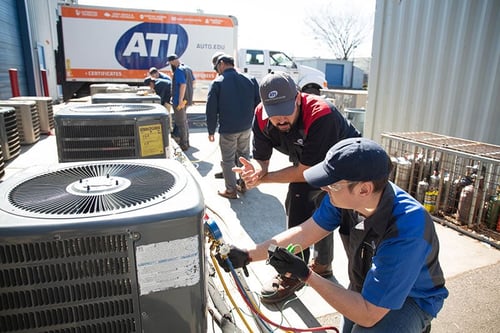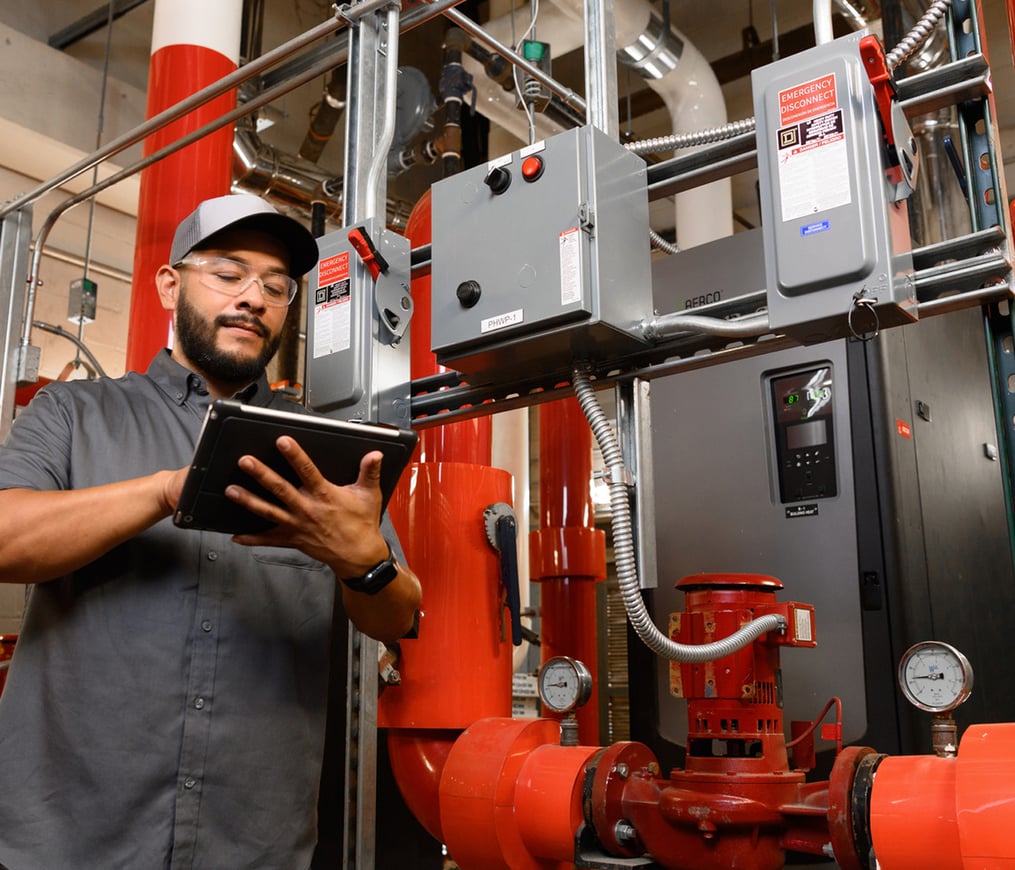Residential Heating and Air Conditioning Solutions for Year-Round Comfort
Residential Heating and Air Conditioning Solutions for Year-Round Comfort
Blog Article
How Cooling Equipment Revolutionize Indoor Settings for Year-Round Comfort
The introduction of air conditioning systems has undoubtedly transformed the method we experience indoor environments, using unprecedented control over temperature and convenience throughout the year. These systems go past plain temperature level changes; they improve indoor air quality and add dramatically to energy efficiency.
Temperature Level Control and Versatility
When it comes to attaining year-round convenience, the relevance of temperature level control and versatility in air conditioning systems can not be overemphasized. Modern air conditioning systems offer advanced technologies such as programmable thermostats and variable speed compressors, which allow users to preserve preferred temperatures with amazing efficiency.
Adaptability is an additional essential component of modern a/c systems. With attributes like zoning capabilities, individuals can customize temperature level setups in various areas of a building, satisfying specific preferences and usage patterns. This degree of control guarantees optimum convenience in every space while decreasing power waste. Additionally, some systems integrate wise modern technology, making it possible for remote gain access to and management with mobile gadgets. This technology allows users to readjust settings on-the-go, offering exceptional benefit and versatility.
In commercial rooms, this versatility is particularly useful, as it enables companies to produce customized environments that improve productivity and consumer fulfillment. Eventually, the accuracy and adaptability of modern-day air conditioning systems play a critical duty in supplying effective, year-round indoor comfort.
Enhancing Indoor Air Quality
In enhancement to temperature level control, enhancing interior air high quality is a vital facet of modern-day air conditioning systems. Including high-efficiency particulate air (HEPA) filters, modern-day air conditioners can catch tiny bits, such as dust, smoke, and pollen, which contribute to respiratory problems and allergies.
Moreover, progressed air conditioning systems typically include attributes such as humidity control, which is pivotal in avoiding mold and mildew development and preserving optimum dampness degrees (HVAC Contractor). Excessive moisture can result in pain, promote microbial development, and worsen specific health conditions. By regulating humidity, a/c unit aid reduce these threats, further improving interior air top quality
In addition, some systems integrate air cleansers and ionizers, utilizing modern technologies that reduce the effects of pollutants and shut off airborne pathogens. This thorough method to air quality monitoring makes sure a much healthier indoor atmosphere, decreasing the risk of health problem and boosting total health. Consequently, the emphasis on air quality improvement highlights the advancing duty of a/c systems beyond simple temperature law.
Energy Performance Innovations
Modern air conditioning systems have actually undertaken significant advancements in energy effectiveness, contributing to both cost financial savings and environmental sustainability. The fostering of high-efficiency compressors, variable rate electric motors, and progressed refrigerants are pivotal developments that have actually transformed just how these systems run.
Smart thermostats have also played a critical role in boosting energy performance. These devices learn individual preferences and adjust cooling schedules appropriately, making certain that cooling systems operate just when required. Assimilation with clever home modern technologies permits for push-button control and tracking, more curtailing energy wastage.
In addition, the shift towards green cooling agents with lower worldwide warming potential (GWP) is an essential growth. These cooling agents are not just much better for the atmosphere but also boost system performance, lining up with international initiatives to decrease carbon impacts. Furthermore, developments in heat exchanger innovation have actually allowed extra efficient warm transfer, improving overall system efficiency. Collectively, these developments indicate a significant stride towards sustainable air conditioning services that benefit both consumers and the world.
Effect On Wellness and Well-being
The impact of air conditioning systems on health and well-being is complex, influencing various aspects of every day life. Largely, these systems offer alleviation from extreme temperatures, which is essential for susceptible populations such as the elderly and individuals with particular wellness problems. By maintaining a steady interior climate, a/c decreases the threat of heat-related ailments, consisting of heat Home Page exhaustion and heatstroke, thus securing residents' health.

Nonetheless, it is vital to keep cooling systems frequently to guarantee their optimal capability and to avoid possible wellness hvac companies threats connected with inadequately preserved systems, such as the spreading of bacteria. Ultimately, when successfully taken care of, cooling systems play a critical duty in boosting convenience, promoting health, and sustaining a healthier living atmosphere throughout the year.
Integration With Smart Technology
Smart modern technology has revolutionized the way cooling systems run, providing enhanced control, effectiveness, and convenience. Modern cooling devices now incorporate effortlessly with wise home communities, enabling users to manage their indoor environment remotely by means of mobile phones or voice-controlled devices. This connectivity makes it possible for real-time surveillance and modifications, guaranteeing that energy consumption is enhanced and comfort is preserved without the need for constant hands-on treatment.
The assimilation with wise innovation likewise assists in using sophisticated organizing attributes, permitting systems to change temperature levels according to tenancy patterns and preferences. HVAC Contractor. This not just takes full advantage of convenience but additionally minimizes unneeded power use, adding to lower energy prices and a lowered carbon footprint. Furthermore, wise sensing units give beneficial data on air quality and system performance, alerting customers to prospective news concerns before they escalate right into costly repair services
In addition, compatibility with smart home assistants such as Amazon Alexa or Google Aide boosts customer experience by supplying hands-free control and the capacity to develop custom automation regimens. As smart innovation remains to advance, it will most certainly bring more innovations to cooling systems, guaranteeing they stay at the leading edge of supplying ideal interior settings year-round.
Verdict

In addition to temperature level control, improving interior air top quality is an important element of modern air conditioning systems. Integrating high-efficiency particle air (HEPA) filters, modern-day air conditioners can catch tiny bits, such as dust, plant pollen, and smoke, which add to respiratory system issues and allergic reactions. By managing humidity, air conditioners aid mitigate these risks, better improving indoor air high quality.
The focus on air quality enhancement highlights the progressing role of air conditioning systems past plain temperature level regulation.
Moreover, air conditioning systems contribute to boosted indoor air top quality by filtering out toxins, irritants, and particulate matter.
Report this page